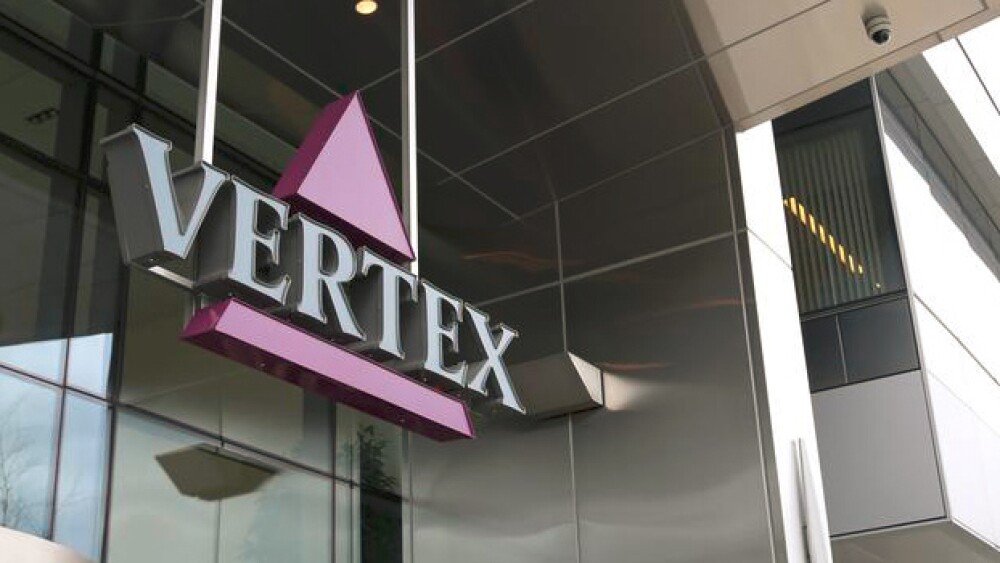The U.S. Food and Drug Administration (FDA) has cleared an Investigational New Drug application that will allow Boston-based Vertex Pharmaceuticals to proceed with a clinical trial of its investigational stem cell-derived, fully differentiated pancreatic islet cell treatment for type 1 diabetes (T1D).
The U.S. Food and Drug Administration (FDA) has cleared an Investigational New Drug application that will allow Boston-based Vertex Pharmaceuticals to proceed with a clinical trial of its investigational stem cell-derived, fully differentiated pancreatic islet cell treatment for type 1 diabetes (T1D).
The therapy, now dubbed VX-880, is described by the company as being “an investigational allogeneic human stem cell-derived islet cell therapy” which holds the potential to restore the body’s ability to normalize glycemic levels via restoration of pancreatic islet cell function.
Vertex says it will launch a Phase I/II clinical trial in the first half of 2021 which will investigate the safety and potential efficacy of VX-880 in patients with T1D with impaired hypoglycemic awareness and severe hypoglycemia. The single-arm, open-label study will use an infusion of the fully differentiated functional islet cells in addition to chronic treatment with concomitant immunosuppressive therapy to protect islet cells from rejection by the immune system. Vertex says it will enroll approximately 17 patients in the trial.
“As we celebrate the 100th anniversary of the discovery of insulin this year, we are excited to bring a first-in-class cell therapy to the clinic with the potential to meaningfully impact people living with T1D,” said Bastiano Sanna, Ph.D., Executive Vice President and Chief of Cell and Genetic Therapies at Vertex, in a statement. “We look forward to getting our clinical program underway and testing our unique approach of replacing pancreatic islet cells, which are destroyed in people with type 1 diabetes, with our stem cell-derived fully differentiated insulin-producing pancreatic islet cells.”
This acceptance of the IND from Vertex directly follows the FDA’s acceptance of the company’s supplemental New Drug Application (NDA) for TRIKAFTA®, a cystic fibrosis (CF) treatment comprising elexacaftor/tezacaftor/ivacaftor and ivacaftor. While the company’s therapy is currently only indicated for patients with CF aged 12 years and older at least one copy of the F508del mutation, the acceptance of the NDA will allow Vertex to expand the indication to include children between 6 and 11 years of age who also carry the mutation in the CF transmembrane conductance regulator gene. Health Canada also accepted an NDA for Priority Review of TRIKAFTA for the treatment of CF in patients aged 12 years and older.
“If approved for this expanded use, we will have the opportunity to treat the underlying cause of the disease earlier in life with TRIKAFTA and potentially benefit approximately 1,500 additional children with CF,” according to a statement made by Carmen Bozic, M.D., Executive Vice President and Chief Medical Officer at Vertex. “Since our initial approval of TRIKAFTA in 2019, we have continued to work tirelessly to bring this medicine to those waiting as quickly as possible. We look forward to working with the Agency as they review the application over the course of the coming months.”
Since December 2020, Vertex has been busy expanding its portfolio with mid-and late-stage assets. Vertex struck a strategic research collaboration and licensing deal with Skyhawk Therapeutics in late December of last year. Under this collaboration, Vertex will work with the Waltham, Mass.-based company on discovering and developing novel small molecules modulating RNA splicing.
“We believe that splice site modulation holds significant promise for the treatment of diseases which today have limited or no therapeutic options,” said Mark Bunnage, D.Phil., Vertex’s Senior Vice President and Site Head, Boston Research. “This collaboration brings Skyhawk’s innovative technology together with Vertex’s research and development experience, and fits perfectly with our strategy of investing in new technologies that will help us transform multiple serious diseases.”
Terms of the agreement saw Vertex giving Skyhawk an upfront payment of $30 million. Skyhawk is also eligible for up to $2.2 billion in potential milestone payments, in addition to possible royalties on sales, under the terms of the deal.





